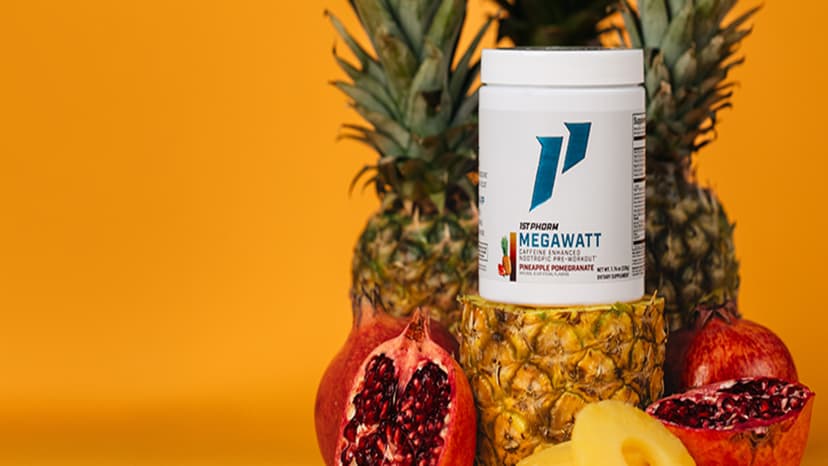Fermented foods have been enjoyed for thousands of years, not just for their unique flavors but also for their health benefits. These foods are made through a process where natural bacteria feed on the sugar and starch in the food, creating lactic acid. This process preserves the food and creates beneficial enzymes, B vitamins, omega-3 fatty acids, and different strains of probiotics. Let's dive into the world of fermented foods, their benefits for your gut, and how you can easily add them to your diet.
Key Takeaways
- Fermented foods are rich in probiotics, which can improve your gut health.
- Including fermented foods in your diet can boost your immune system.
- Fermentation can enhance the nutrient absorption of foods.
- Fermented foods can be easily added to meals in various ways.
- Making fermented foods at home is simple and can be a fun project.
Understanding Fermentation and Its Role in Gut Health
The Science Behind Fermentation
Fermentation is an ancient method used to preserve food and drinks. During this process, microorganisms like bacteria, yeast, or fungi convert sugars and starches into alcohol or acids. These byproducts act as natural preservatives, giving fermented foods their unique flavors and textures. Fermentation not only extends the shelf life of foods but also enhances their nutritional value.
Types of Fermentation Processes
There are two main types of fermentation processes:
- Spontaneous Fermentation: This occurs naturally when microorganisms present in the food or environment initiate the process. Examples include kimchi and sauerkraut.
- Starter Culture Fermentation: This involves adding a specific culture to the food to start fermentation. Examples include kefir and natto.
How Fermentation Affects Gut Bacteria
Fermented foods are rich in beneficial bacteria, often referred to as probiotics. These probiotics help balance the gut microbiome, which is crucial for digestive health. By consuming fermented foods, you can introduce a variety of beneficial bacteria into your gut, supporting overall health and well-being.
Including fermented foods in your diet can help maintain a healthy gut microbiome, which is linked to better digestion, improved mood, and enhanced immune function.
Top Fermented Foods for a Healthy Gut
Kefir: The Probiotic Powerhouse
Kefir is a tangy, fermented milk drink that originated in the Caucasus region. It's made by adding kefir grains to milk and letting it ferment for about 24 hours. Packed with a variety of beneficial bacteria, kefir can help improve gut health, control blood sugar, and reduce inflammation. You can enjoy it on its own or use it as a substitute for milk in recipes.
Kimchi: The Spicy Gut Booster
Kimchi is a traditional Korean dish made from fermented vegetables, usually cabbage and radishes, seasoned with chili pepper, garlic, and ginger. This spicy treat is rich in probiotics and vitamins, making it excellent for your gut. It can be eaten as a side dish or added to soups and stews for an extra kick.
Sauerkraut: The Classic Fermented Cabbage
Sauerkraut is finely cut cabbage that has been fermented by various lactic acid bacteria. Originating from Europe, this tangy food is a great source of fiber, vitamins, and probiotics. It's best enjoyed as a topping for sausages or mixed into salads.
Kombucha: The Trendy Fermented Tea
Kombucha is a fermented tea that has gained popularity for its potential health benefits. Made by fermenting sweetened tea with a symbiotic culture of bacteria and yeast (SCOBY), kombucha is slightly fizzy and can be flavored with fruits and herbs. It's a refreshing drink that can help improve digestion and boost your immune system.
Including a variety of fermented foods in your diet can significantly improve your gut health. Start with small portions and gradually increase to avoid digestive discomfort.
Health Benefits of Fermented Foods
Improving Digestive Health
Fermented foods are rich in probiotics, which are beneficial bacteria that help balance the gut microbiome. This balance can alleviate digestive issues like bloating, gas, and constipation. By breaking down complex carbohydrates, these foods make digestion easier and more efficient.
Enhancing Nutrient Absorption
Fermentation can increase the availability of nutrients in foods. For example, it can break down anti-nutrients like phytic acid, which can inhibit the absorption of minerals such as iron and zinc. This process makes it easier for your body to absorb these essential nutrients.
Boosting Immune Function
A healthy gut is closely linked to a strong immune system. The probiotics in fermented foods can enhance your immune response by promoting the production of antibodies and inhibiting the growth of harmful bacteria. This can help reduce the risk of infections and illnesses.
Supporting Mental Health
Emerging research suggests a connection between gut health and mental well-being. Certain strains of probiotics found in fermented foods may help reduce symptoms of anxiety and depression. These beneficial bacteria can influence the production of neurotransmitters like serotonin, which play a key role in mood regulation.
Including a variety of fermented foods in your diet can offer multiple health benefits, from improved digestion to better mental health. Start small and gradually increase your intake to see how your body responds.
How to Incorporate Fermented Foods into Your Diet
Simple Ways to Add Fermented Foods to Meals
Adding fermented foods to your diet is quite easy. Start with familiar options like yogurt or kefir. These can be enjoyed on their own or added to smoothies and parfaits. For a savory twist, try adding kimchi or sauerkraut to your sandwiches, salads, or rice bowls. You can also use miso paste in soups and marinades for a burst of umami flavor.
Recipes Featuring Fermented Foods
Here are some simple recipes to get you started:
- Kimchi Fried Rice: Sauté kimchi with rice, vegetables, and a protein of your choice for a quick and flavorful meal.
- Kefir Smoothie: Blend kefir with your favorite fruits and a bit of honey for a nutritious breakfast or snack.
- Miso Soup: Dissolve miso paste in hot water and add tofu, seaweed, and green onions for a comforting soup.
Tips for Beginners
- Start Slow: If you're new to fermented foods, begin with small portions to allow your digestive system to adjust.
- Read Labels: Look for products labeled "naturally fermented" to ensure they contain live cultures.
- Experiment: Don't be afraid to try different types of fermented foods to find what you like best.
Incorporating fermented foods into your diet can be a delicious and easy way to boost your gut health. Start with small changes and gradually explore new options to find what works best for you.
Making Your Own Fermented Foods at Home
Essential Equipment and Ingredients
To start fermenting foods at home, you'll need a few basic items:
- Sterilized glass jars
- Salt
- A cloth napkin or cheesecloth
- Fresh vegetables or other ingredients to ferment
Step-by-Step Guide to Fermenting at Home
- Prepare your vegetables: Clean and chop your vegetables. Combine them with salt and mix thoroughly to release their natural juices.
- Add herbs and spices: Mix in any desired herbs and spices for extra flavor.
- Pack the jar: Place the vegetables and their brine into a sterilized glass jar. Ensure the vegetables are completely submerged in the liquid.
- Seal and store: Close the jar tightly and store it at room temperature. You may see bubbles forming as the fermentation process begins.
- Release gases: Gently open the lid once a day to let out any built-up gases.
- Fermentation time: Allow the vegetables to ferment for 3 days to a month, depending on your taste preference. The longer they ferment, the tangier they will become.
- Refrigerate: Once fermented, store the vegetables in the refrigerator. They can last for months when kept cold.
Safety Tips for Home Fermentation
- Always use sterilized equipment to avoid contamination.
- Wash your hands thoroughly before handling ingredients.
- Ensure vegetables are fully submerged in brine to prevent mold growth.
- If you notice any off smells or colors, discard the batch immediately.
Fermenting foods at home can be a fun and rewarding way to boost your gut health. Just follow these simple steps and safety tips to enjoy delicious, homemade fermented foods.
Common Myths and Misconceptions About Fermented Foods
Debunking Fermentation Myths
Fermented foods have been around for centuries, yet there are still many myths surrounding them. One common myth is that all fermented foods contain probiotics. While many fermented foods do have probiotics, not all of them do. For example, sourdough bread and beer are fermented but do not contain live probiotics.
Understanding Probiotics vs. Fermented Foods
It's important to understand the difference between fermented foods and probiotics. Fermented foods are made using microorganisms like bacteria or yeast, which cause chemical changes in the food. Probiotics, on the other hand, are live microorganisms that provide health benefits when consumed in adequate amounts. Not all fermented foods meet the criteria to be considered probiotics.
Addressing Safety Concerns
Some people worry about the safety of eating fermented foods. However, when made and stored properly, fermented foods are safe to eat. They have natural preservatives like alcohol or acids that help prevent harmful bacteria from growing. Always follow proper guidelines for fermenting and storing these foods to ensure they are safe to consume.
Fermented foods can be a healthy addition to your diet, but it's crucial to understand the facts and debunk the myths surrounding them.
Choosing Quality Fermented Foods
Reading Labels and Ingredients
When selecting fermented foods, it's crucial to read the labels carefully. Look for phrases like "naturally fermented" or "contains live cultures". These indicate that the product has beneficial bacteria. Avoid products with added sugars or artificial ingredients, as these can diminish the health benefits.
Avoiding Pasteurized Products
Pasteurization kills harmful bacteria, but it also destroys the beneficial probiotics in fermented foods. To ensure you're getting the most out of your fermented foods, choose products that are unpasteurized. Always check the label to confirm this.
Finding Reliable Brands and Sources
Not all brands are created equal. Some may cut corners in the fermentation process, resulting in lower quality products. Do some research to find reliable brands known for their high-quality, naturally fermented foods. You can also consider local sources, such as farmers' markets, where you can often find fresh, homemade fermented foods.
Choosing the right fermented foods can make a significant difference in your gut health. Always opt for natural, unpasteurized options to reap the full benefits.
Conclusion
Incorporating fermented foods into your diet can be a simple and effective way to boost your gut health. These foods, rich in beneficial bacteria, can help improve digestion, enhance nutrient absorption, and even support your immune system. From tangy sauerkraut to creamy yogurt, there are plenty of delicious options to choose from. By adding just a few servings of fermented foods to your daily meals, you can enjoy both their unique flavors and their health benefits. Remember, a healthy gut is a cornerstone of overall well-being, so start exploring the world of fermented foods today!
Frequently Asked Questions
What are fermented foods?
Fermented foods are foods that have been through a process where natural bacteria feed on the sugar and starch in the food, creating lactic acid. This process preserves the food and creates beneficial enzymes, B vitamins, Omega-3 fatty acids, and various strains of probiotics.
How do fermented foods benefit gut health?
Fermented foods introduce beneficial bacteria into your digestive system and help balance the bacteria in your gut. This can improve digestion, boost your immune system, and even help with better mood and mental health.
Can everyone eat fermented foods?
Most people can enjoy fermented foods, but some might have a sensitivity or allergy to certain types. It's always a good idea to start with small amounts and see how your body reacts.
How often should I eat fermented foods?
There are no strict guidelines, but adding a few servings of fermented foods to your daily diet can be beneficial. Start with one or two servings per day and see how you feel.
Are all fermented foods probiotic?
Not all fermented foods contain live probiotics. Some fermented foods are pasteurized, which kills the beneficial bacteria. Always check the label to ensure the product contains live and active cultures.
Can I make fermented foods at home?
Yes, you can make many fermented foods at home, such as sauerkraut, kimchi, and kefir. Just make sure to follow proper guidelines and safety measures to avoid contamination.
























